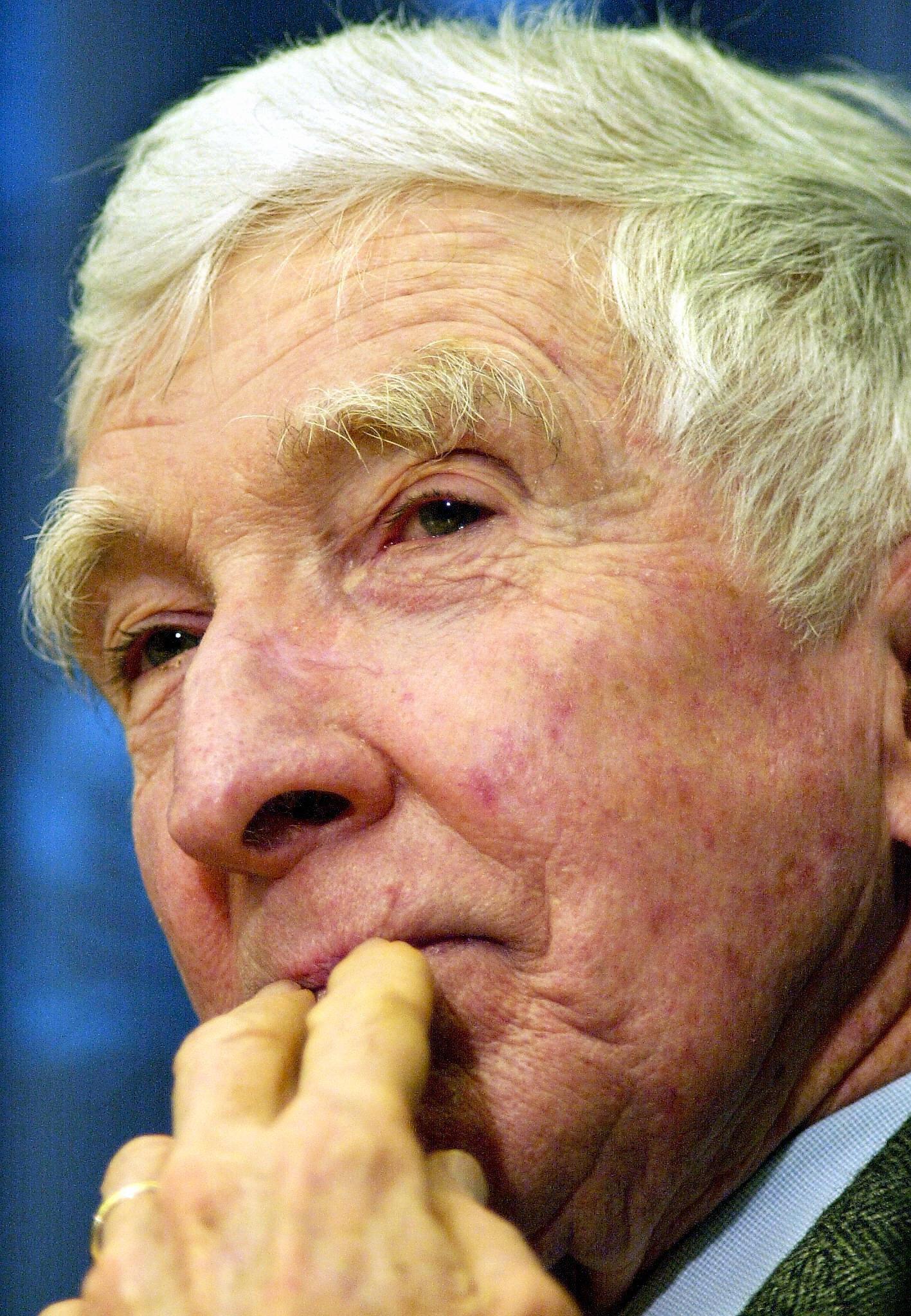On this week’s Culture Gabfest, in a discussion of the new movie Weekend (which all of the gabbers love), Stephen Metcalf mentions a controversial book review by John Updike. The words “controversial,” “book review,” and “John Updike” may not seem like obvious bedfellows, but actually he made them something of a habit in his later years, as Gawker noted in 2008.
And yet that Gawker post didn’t mention the review Metcalf had in mind: This one, from 1999 (subscription required; you can also read much of it on Google Books), was Updike’s take on The Spell, a novel by Alan Hollinghurst about four gay men in England in the mid-’90s. Here is the very first sentence of Updike’s review:
The novels of the English writer Alan Hollinghurst take some getting used to; they are relentlessly gay in their personnel, and after a while you begin to long for the chirp and swing and civilizing animation of a female character.
It doesn’t get better from there. Updike says the readers’ “noses are rubbed” by Hollinghurst “in the poetry of a love object’s anus,” going on to quote some of the novel’s strikingly elegant (and, yes, sexually explicit) descriptive prose. This would be fairly unremarkable were it coming from a critic other than Updike, whose “treatment of sex” in his own fiction was described (by Wilfrid Sheed) as “that of a fictional biochemist approaching mankind with a tray of hypersensitive gadgets.”
And Updike didn’t just express discomfort at Hollinghurst’s precise, physically detailed observations about gay sex: He actually wrote a kind of brief against gay love as a compelling novelistic subject. “Boredom swoops in without heterosexual clutter to obstruct its advent,” he wrote; “nothing is at stake but self-gratification.” He went on:
Novels about heterosexual partnering, however frivolous and reducible to increments of selfishness, social accident, foolish overestimations, and inflamed phsyical detail, do involve the perpetuation of the species and the ancient, sacralized structures of the family.
In other words, I guess, if God wanted there to be great gay novels, he wouldn’t have made us this way.
Updike’s review did cause at least some stir at the time. The writer and activist Larry Kramer “circulated an e-mail alert among gay writers” after the review was published, as the New York Observer reported. “It really feels like an attack,” Tony Kushner said to the Observer of the review; Sarah Schulman called it “outrageous,” and wrote a letter to The New Yorker (which was not, so far as I can tell, ever published).
The Observer also spoke to Updike, and he proceeded to dig himself sadly deeper:
I’d be happy not to discuss [homosexuality]. Hollinghurst made it kind of tough. It makes it the unavoidable topic of discussion. It’s all about it. And for me to avoid his own emphasis would certainly be not doing my reviewer’s job.
Updike makes it sound as though the controversy was that he referred to gay sex at all, not that he spoke about it in a bigoted manner. (That he would have been “happy not to discuss it” appears to indicate his fundamental discomfort with the subject.)
And yet the incident seems to have been largely forgotten. As Juliet Lapidos writes in Slate today, many critics have mentioned the absence of explicit sex in Hollinghurst’s new book, The Stranger’s Child, and have suggested perhaps the author is kowtowing to critics. Yet the reviews she points to don’t mention Updike. The one review that does, Geoff Dyer’s in New York Magazine, makes it sound like Updike praised Hollinghurst’s graphic descriptions.
One writer who has discussed the review: Colm Toíbín, who mentioned it in an interview with Bookslut in 2009. “I’m interested in the very, very few people who come forward with their prejudices blazing,” he said. Toíbín thought Updike’s homophobia would “eventually eat into his reputation. Because his own elaborately confident and super-developed heterosexuality is actually an impediment to the proper writing and it eats at his sentences at times and it eats at his books.”
I’d have to read further in Updike’s work, or at least reread what fiction of his I have read, before I could say whether I agree with Toíbín that Updike’s apparent prejudice damaged his fiction. But it certainly resulted in at least one rather terrible review.
(Further reading: “The Rumor,” a late short story by Updike, in which a man married to a woman learns of a rumor that he’s gay. From Esquire, 1991.)
